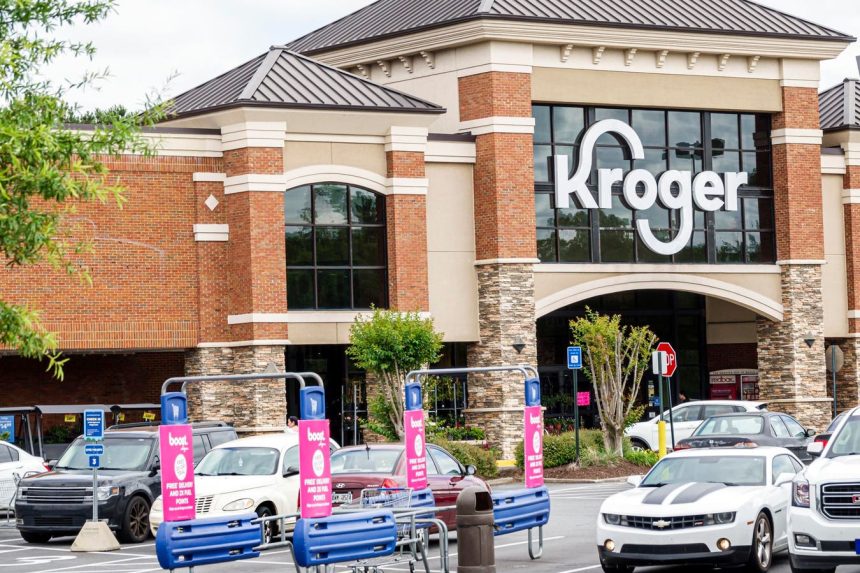The proposed $25 billion merger between grocery giants Kroger and Albertsons has been blocked by both a Federal Judge and a King County Judge in Washington state, marking a significant victory for consumers, workers, smaller suppliers, and antitrust advocates. The Federal Trade Commission (FTC) successfully argued that the merger would stifle competition, leading to higher prices for consumers and diminished bargaining power for unionized workers. Kroger and Albertsons had contended that the merger was necessary to compete with industry titans like Walmart, Costco, and Amazon, proposing the divestiture of 579 stores as a remedy to maintain competition. However, the courts sided with the FTC and other opponents, recognizing the potential harm to the grocery landscape. This decision highlights a renewed focus on antitrust enforcement and its potential to protect consumers and workers from the negative consequences of unchecked corporate consolidation.
The merger’s failure represents a turning point in antitrust enforcement, as it’s the first time in decades a supermarket merger of this magnitude has been blocked. The decision underscores the Biden administration’s commitment to revitalizing antitrust laws and curbing the power of large corporations. This legal battle brought to light several critical issues within the grocery industry, including the extreme concentration of market share among a handful of companies. The top six grocery chains control 65% of national retail sales, with Walmart alone commanding nearly 30% nationally and over 50% in many regions. This dominance extends throughout the supply chain, impacting consumer packaged goods (CPG) as well, where a few corporations control the majority of sales in numerous product categories. This concentrated market power enables these companies to exert significant influence over pricing and supplier relationships.
The court proceedings revealed how this market concentration contributes to inflated prices. Evidence presented during the trial demonstrated that Kroger, in particular, implemented strategic price hikes on essential items like milk and eggs, exceeding the rate of inflation and maximizing profits at the expense of consumers. Internal documents further exposed how Kroger maintained high prices even when their costs decreased, waiting for competitors to lower prices first. This behavior underscores the lack of genuine competition within the industry, as Kroger focused more on aligning prices with Albertsons rather than competing aggressively with Walmart, contradicting their initial justification for the merger. This manipulation of pricing demonstrates the potential for abuse when market power is concentrated in the hands of a few dominant players.
The impact of this proposed merger extended beyond consumer pricing to the welfare of grocery workers. The merger threatened to weaken the bargaining power of unionized workers by reducing the number of potential employers. Unions rely on the ability to leverage competition between employers to secure better wages, benefits, and working conditions. A merger of this scale would have eliminated a significant competitor, leaving workers with fewer options and diminishing their ability to negotiate effectively. The blocking of the merger safeguards the interests of these workers, preserving their ability to advocate for fair treatment and decent livelihoods.
The arguments against the merger were bolstered by data revealing significant price increases in the grocery sector while demand remained stagnant. Grocery prices have surged by over 30% since 2019, despite flat or declining unit volumes. This disconnect between price and demand suggests that factors beyond market forces, such as corporate profiteering, played a significant role in driving inflation. The pandemic and the war in Ukraine provided convenient cover for companies to raise prices beyond the rate of their own cost increases, a phenomenon known as “sellers inflation.” This practice contributed significantly to the overall food price inflation observed between 2020 and 2022.
The blocked Kroger-Albertsons merger serves as a potent example of the potential for renewed antitrust enforcement to protect consumers and workers. It highlights the dangers of unchecked corporate consolidation and the need for vigilant oversight to ensure fair competition. While the blocked merger is a positive step, the grocery industry faces broader challenges, including climate change, the health consequences of unhealthy food, and persistent food deserts. The future of the grocery industry should prioritize diversified ownership and governance models, emphasizing worker welfare, environmental sustainability, and a transparent accounting of the true cost of food production. This vision of a more equitable and sustainable food system is not merely aspirational; it represents a necessary shift towards a more just and resilient food economy.



